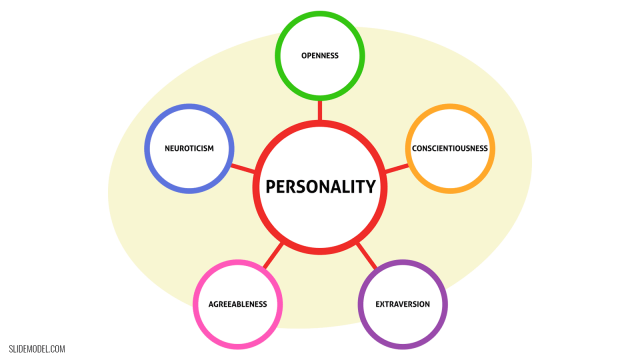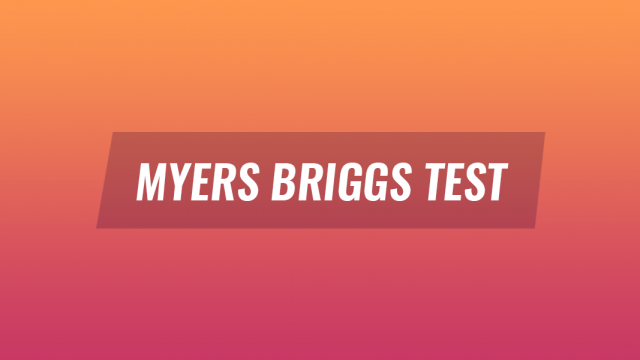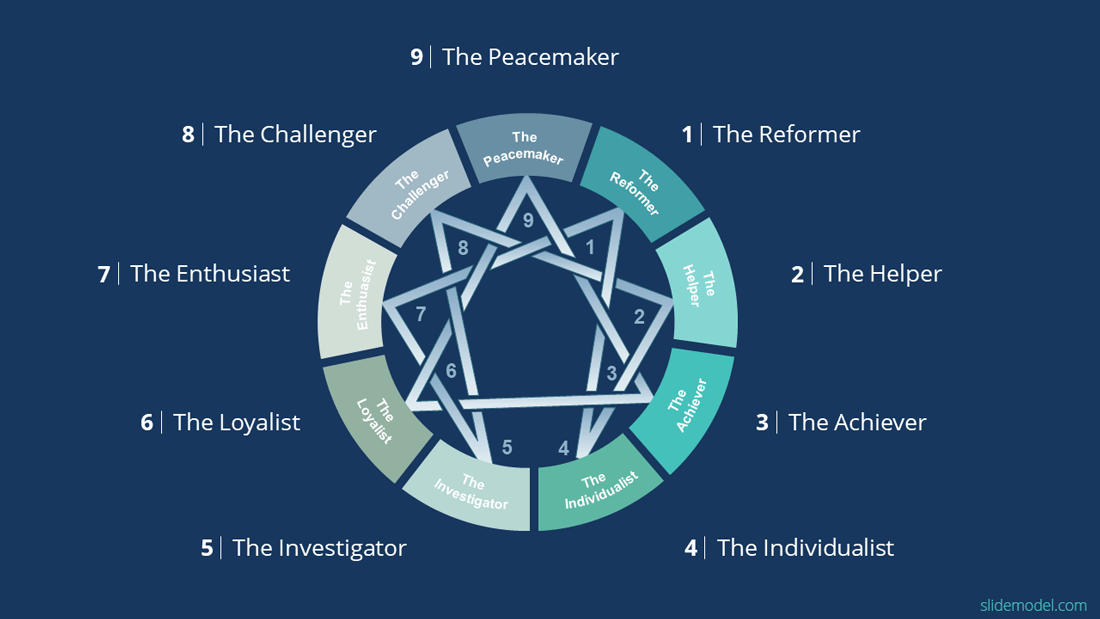
Enneagram is a model of the human psyche. It is used for explaining what is considered as the nine interconnected personality types. This model is widely used to study dominant behavior traits to better understand the abilities and weaknesses of an individual; in order to make the most out of one’s gifts and understanding the challenges that one’s personality might pose for him/her.
What is The Enneagram Model?
The idea behind the Enneagram Model is that we all have nine personality types within us. Among these nine personalities, one is the most dominant. The Enneagram can be used to understand the behavior of an individual. Understanding your behavior using the Enneagram Model can help unlock your gifts and make sure that you’re able to fine-tune yourself when dealing with others by better understanding what works best for you. Similarly, you can better understand your weaknesses and the challenges that hold you back because of your dominant personality traits.
Nine Personality Types of the Enneagram Model & how they Affect Presentation Style
Let’s take a look at the nine personality traits of the Enneagram Model in detail, with particular reference to how each personality can make use of their skills for a killer presentation.
1. The Reformer
The Reformer is an idealist, seeking perfection with a conscientious and principled personality. The Reformer tends to be concerned about perfection, trusting others very little, as they might not be able to meet his/her high standards.
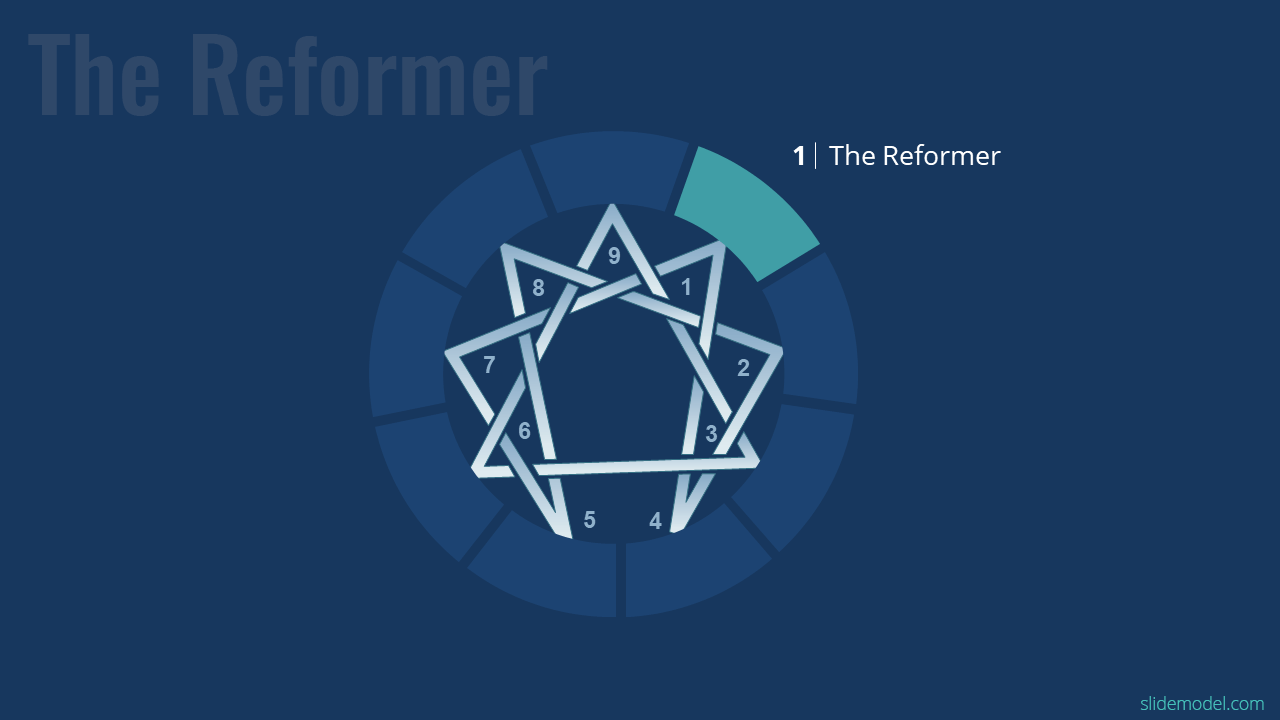
Reformers can tend to take a lot of burden on themselves in the pursuit of getting things done “right”. This might lead to trust and ego related issues, and the burden to do too much might negatively affect the Reformer. For example, workaholics who try to get things done on their own are always at a risk of getting burned out and might even become agitated because of their lack of trust and inability to delegate tasks to others. This can be overcome by mentoring others and developing a pattern of trust over some time to encourage delegation of tasks.
Presentation Style: Reformers can be great presenters due to their attention to detail and need for perfection. However, they should not shy away from seeking help and corroborating facts and figures. The Reformer can run the risk of ignoring valuable advice due to a lack of trust in the ability of others. Being more open to seeking help can make Reformers better presenters.
2. The Helper
The Helper is a caring personality type. The Helper is generous, with a love for being with other people and catering for their needs. However, the Helper suffers from behavior that requires constant approval from others.
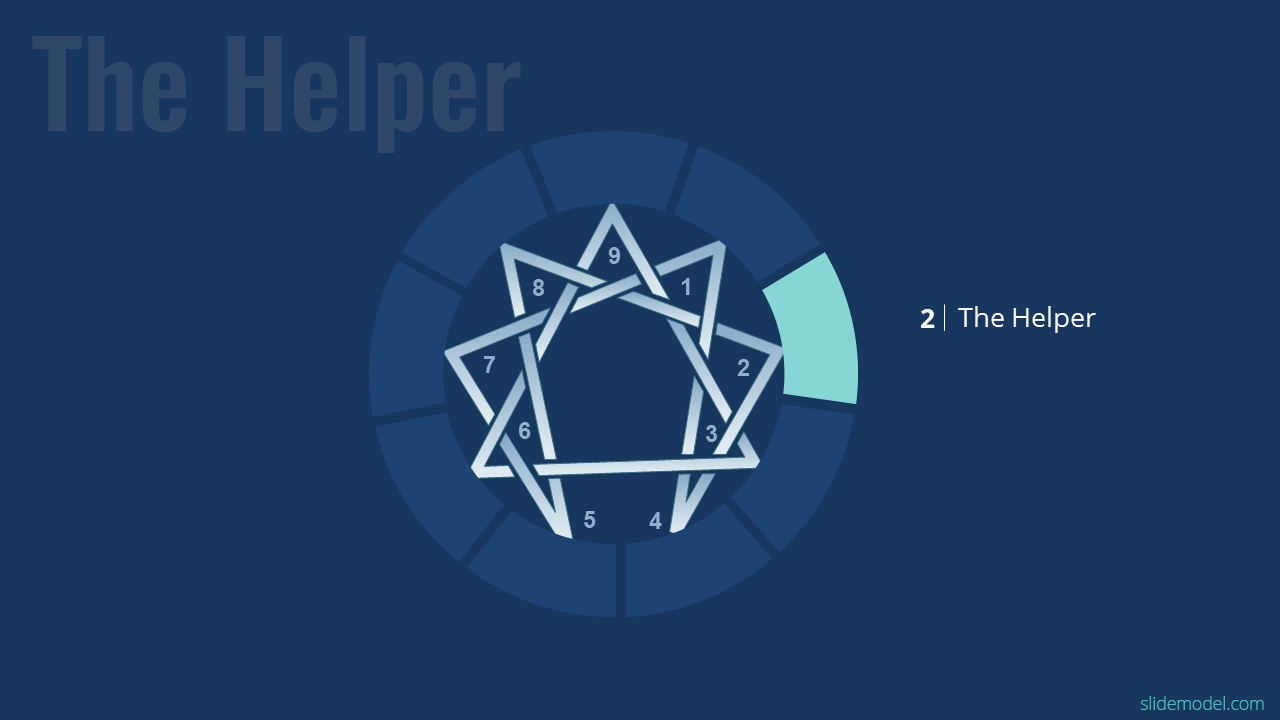
The need to be seen as “helpful” can be the undoing of Helpers. Furthermore, the Helper can often avoid taking a firm stand out of the fear of offending others. Therefore, it is necessary for the Helper to overcome his/her people-pleasing tendency and opt for prioritizing their focus more equitably. This is because the Helper runs the risk of becoming bitter in the long run, as people might take advantage of his/her generosity.
Presentation Style: As a presenter, the Helper’s biggest asset is his/her warm-heartedness and generosity. Even if the slides presented by the Helper aren’t all that visually appealing, the real strength for the Helper is the ability to win hearts and minds by reaching the audience at a very personal level. However, the Helper should not be afraid of criticism or tough questions asked from the audience during a Q&A session, since the need for approval can be the Helper’s weakness.
>> Recommended read: Which presentation style suits according to the Myers-Briggs test?
3. Achiever
The Achiever personality type is driven by success and the need to achieve targets. Achievers are image-conscious and like to achieve the goals they set for themselves without compromise.
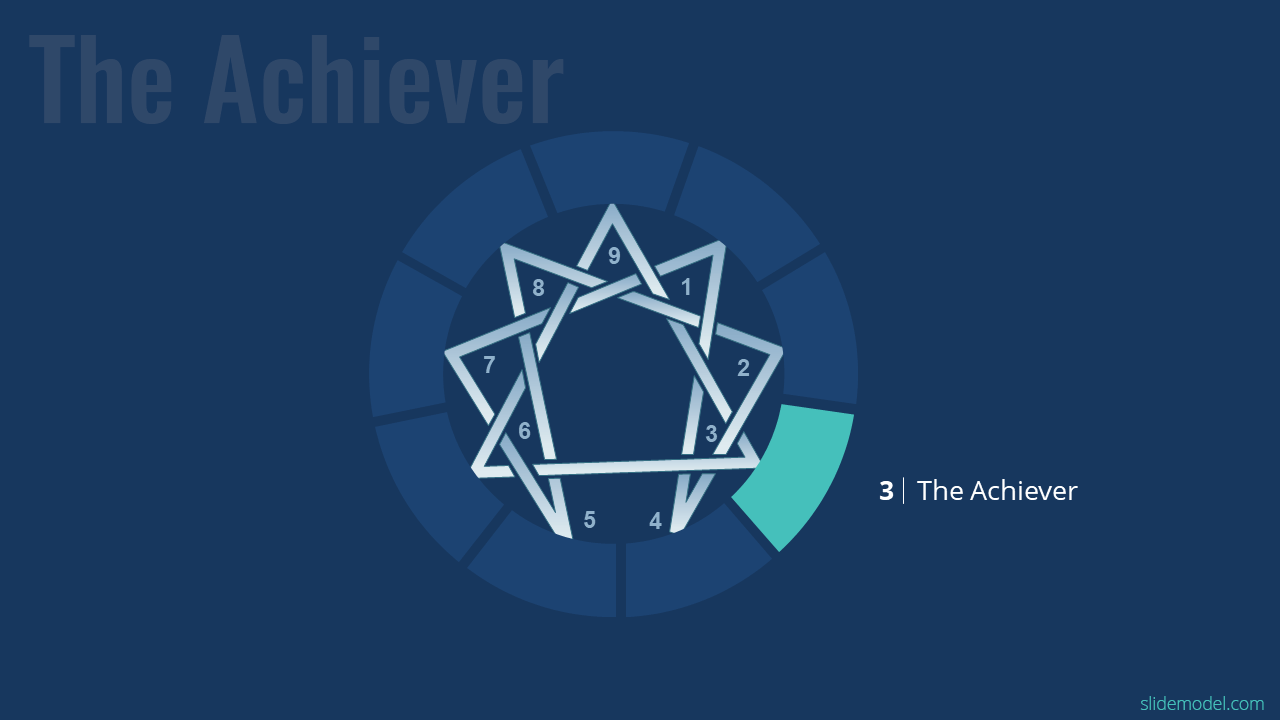
Achievers tend to have high standards and are good at acquiring targets. This also means that Achievers can overvalue the opinion of others in order to maintain their image. Furthermore, one of the temptations of the achiever is “deceit”. This might mean that they may compromise on morals to achieve set goals.
Presentation Style: Achievers are goal-oriented and charismatic, which can help them win over the audience with their charm. However, in order to achieve an end, the Achiever might intend to deceive his/her audience to achieve desired results. This can also be the downfall of the achiever, as deceiving people with misleading information can quickly backfire. This is because it is now easier for people to verify facts using information technology-driven platforms and the Internet. The Achiever should not get carried away with trying to reach a target at all costs, since this might lead to irreparable damage to his/her reputation. Instead, the Achiever can focus on their charm, charisma and hard work to present their side of the argument to win over an audience.
4. Individualist
Individualists are unique, temperamental and creative. While they strive for uniqueness, they can feel isolated with the same sense of being too different from others.
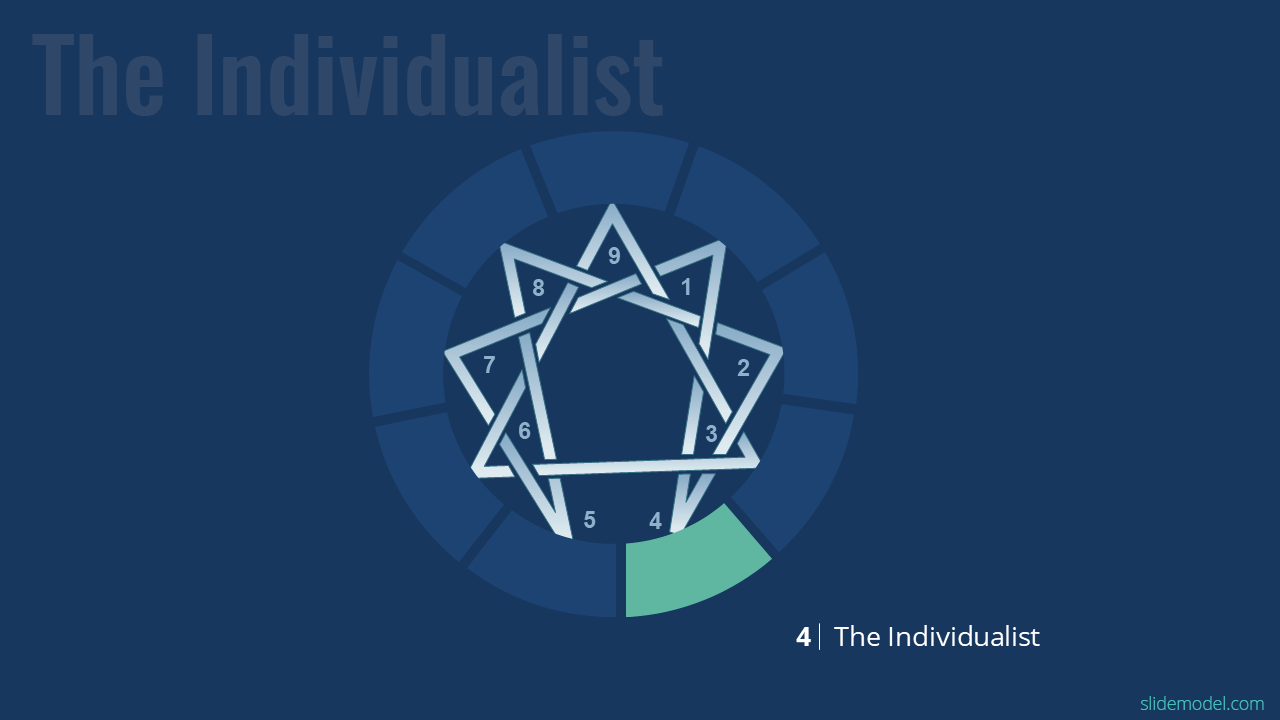
This can result in mood swings and depression. Individualists are emotional and feel things at a deeper level than others. They can find strength in their uniqueness and creativity.
Presentation Style: What works best for Individualists is to be themselves. Their uniqueness can be a breath of fresh air for the audience. Their creativity and distinctive thought process can help them grab the attention of their audience. Individualists should, however, try to keep in mind the type of audience they are addressing and not make their presentations too complicated. This is because what others find fascinating might be too mundane for the Individualist. This might lead to a presentation that is too complicated for the audience.
5. The Investigator
The Investigator prefers time alone and takes pleasure in digging deep into concepts.
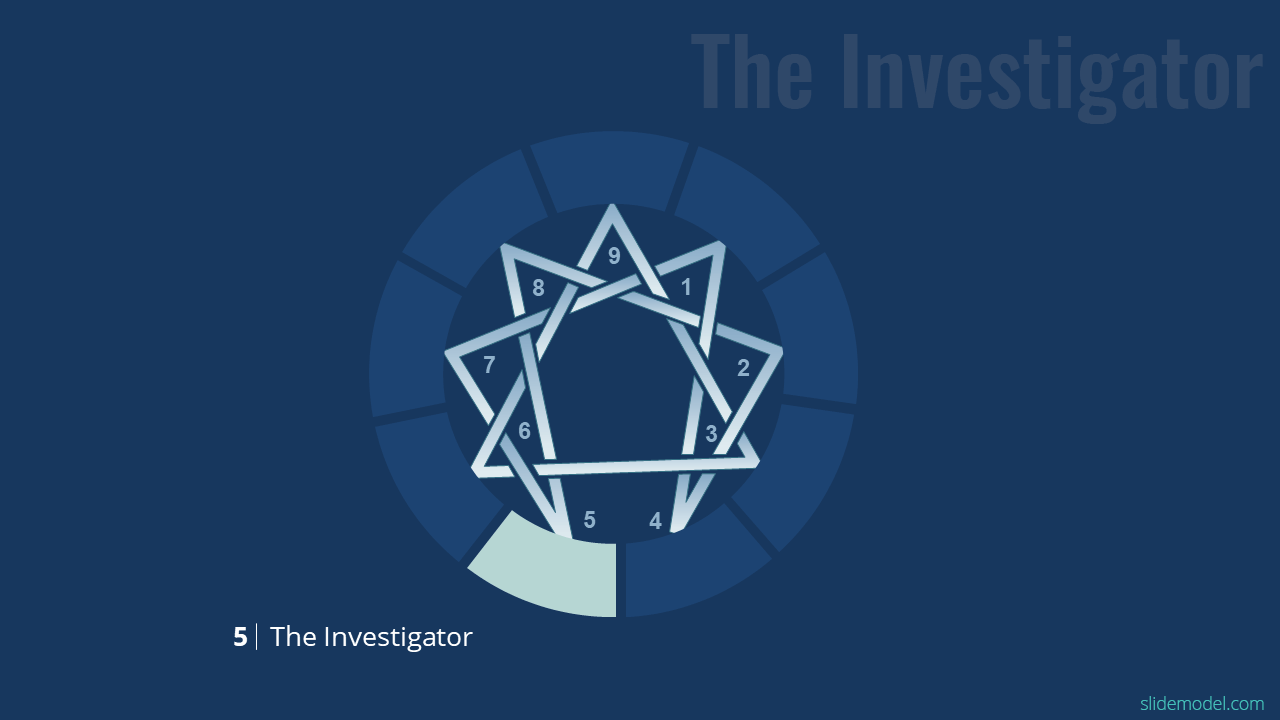
The investigator has a keen sense of observation. Investigators are not tempted by social status and the way they are perceived by others. They are more concerned about dissecting information and acquiring knowledge.
Presentation Style: The investigator can be good at presenting facts, however, that can appear dull and boring if not presented in a manner that can keep the audience engaged. Investigators are also private types, and socializing can be draining for them. This might result in weak presentation skills or problems with public speaking. Investigators can overcome this dilemma by seeking help from others who are more expressive and creative at presenting information in an attention-grabbing manner.
6. Loyalist
Loyalists are loyal friends but have a strong sense of perceiving threats and danger.

Their need for watching out for threats and danger can often result in skepticism. This means that Loyalists can doubt most things and they can tend to be a little too careful.
Presentation Style: Loyalists can let their keen sense of skepticism creep into presentations. While this might not always be a bad thing, many a time the audience would like some sort of conclusion or strong opinion based on facts. The biggest threat for a Loyalist as a presenter and in general is to not let paranoia get the best of him/her and keep a window open for positivity. Loyalists can also use their keen sense of threat perception for something like a SWOT analysis where such skills can be particularly useful.
7. The Enthusiast
Enthusiasts are the fun-loving types who like to engage in things that are enjoyable and adventurous.
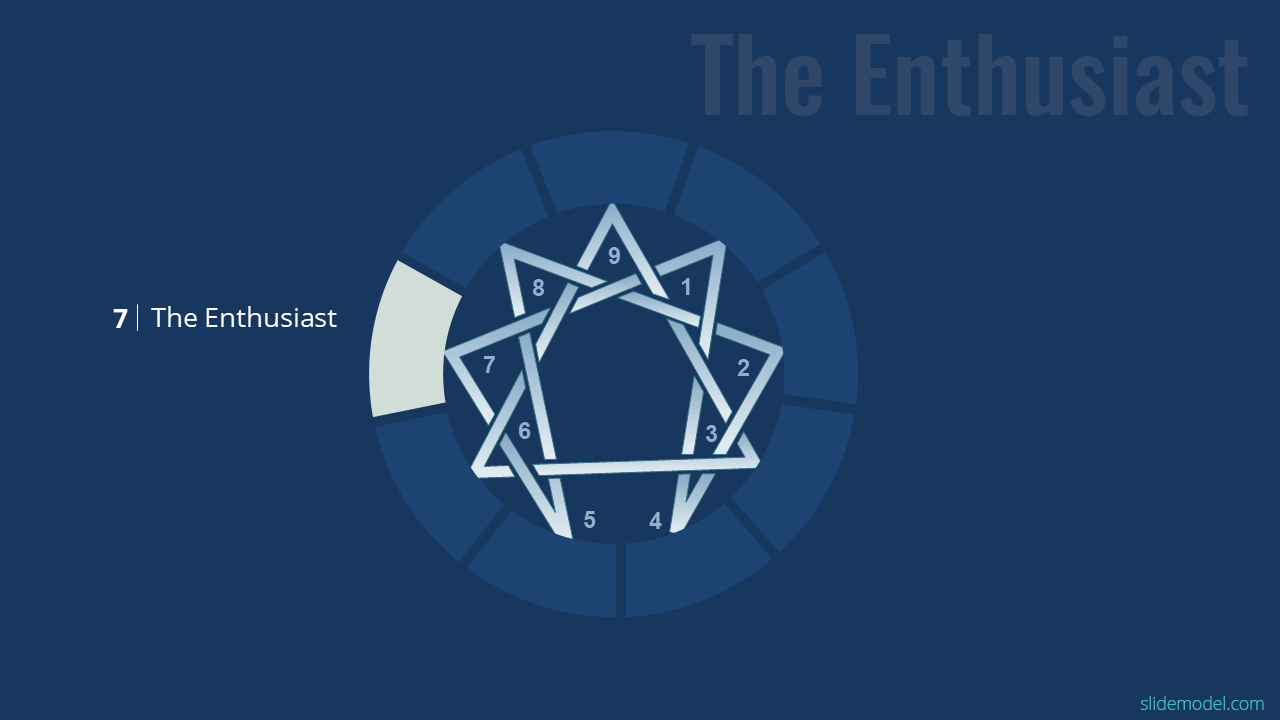
They are less stressed than other personality types. Enthusiasts are restless, require constant stimulation and can lose focus of the task at hand because of something which might seem more attractive than the current project they are working on.
Presentation Style: Enthusiasts can make use of their fun-loving personality to be likeable and keep the audience engaged with their positivity and stimulating presentation style. However, it can be hard for Enthusiasts to keep focus and complete their assignments on time, which might mean they may end up with a half-cooked presentation due to a lack of attention to detail. Enthusiasts should try to minimize distractions and can even try productivity methods like Pomodoro to improve concentration when working on their presentations.
8. The Challenger
The Challenger has a strong need for control and can be quite confrontational.

The Challenger is the Alpha male type, looking to dominate every situation. This can result in needless confrontations and challenges for the Challenger. People who might not like the controlling nature of Challengers might even take offense because of their attitude.
Presentation Style:
A dominant presenter can be perceived positively by an audience, resulting in a successful presentation by the Challenger. However, the need for control can result in a needless confrontation with audience members who may be critical of the Challenger. It is therefore necessary for this personality type to remain calm in the wake of criticism and be more humble when addressing and interacting with the audience. Challengers can also present in groups with a more calm personality type so that certain questions and parts of the presentation can be handled by someone with a less confrontational personality.
9. The Peacemaker
Finally, the Peacemaker. The Peacemakers are the compliant types who hate confrontations.

They prefer peace and harmony over ego and confrontation. This also means that they can be a bit too agreeable and can be made to admit a mistake they didn’t make.
Presentation Style: A Peacemaker will try to connect with the audience and find the means to seek their agreement. This can be an approach that may act like a two-edged sword. At one end it might help a Peacemaker win over an audience, whereas it can also result in bullying by people in the audience. A Peacemaker runs the risk of losing sight of their goal in the hope of agreeing with others. This is why a Peacemaker might team up with another personality type to make up for this deficiency as a presenter, such as a Challenger or Investigator.
Final Words
The Enneagram Model can serve as a valuable insight into our best and worst personality traits, temptations and gaps which can be filled by seeking help from others or working on behavior change. Whether you’re a presenter, someone looking to move up the organizational hierarchy by striving for better performance or someone seeking work-life balance; you can study your personality in light of the Enneagram Model to do all that and more!

